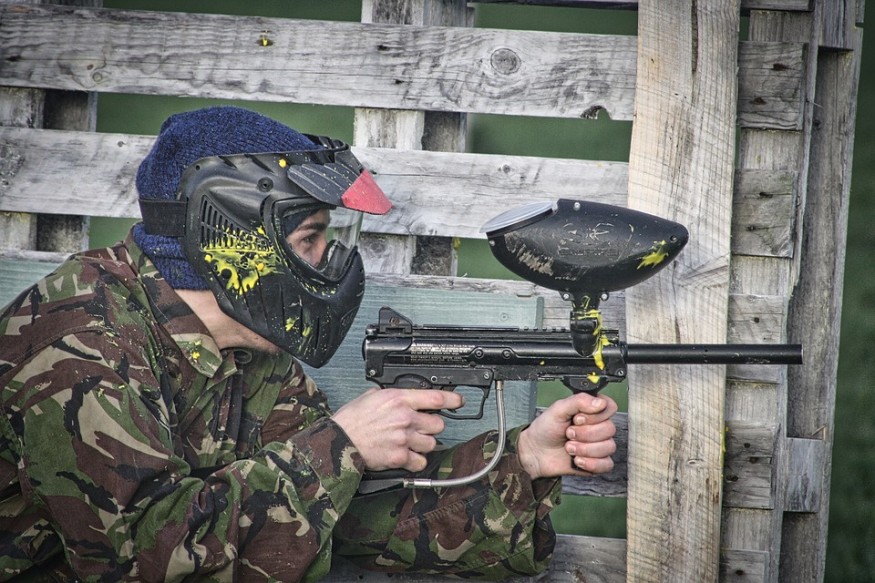
Researchers say that the increasing rate of eye injuries are linked to non-powder firearms such as BB guns and paintball guns. Although they are not typically considered lethal weapons, it is time to take these types of guns seriously, especially when they are used by children.
Between 1990 and 2016, the overall rate of injuries from non-powder BB guns and paintball guns among children decreased by more than 54%. But the rate of eye injuries, often severe, jumped more than 30%, according to a new study published in Pediatrics. The study's authors wrote that non-powder firearms should be regarded as potentially lethal weapons.
The researchers went through the statistics from the National Electronic Injury Surveillance System, and they collected data from 1990 to 2016. Anytime a non-powder firearm, such as BB guns, airsoft guns, paintball guns, and pellet guns, sent a child or a teen to the hospital with an external injury, the researchers counted it towards the total.
Eye injuries on the rise
During the 26-year time period, around 364,133 children were injured by direct contact with the non-powder guns. BB guns accounted for more than 80% of those injuries, mostly located in the neck and head area.
Boys were significantly more likely to be injured, the researchers estimated around 87%. The majority of the patients were between 6 and 12 years old. The eye injuries that were accounted for were about 53,994 of those injuries, which is almost 15%, the researchers said. The most common variety was corneal abrasion, a scratch to the eyeball that usually heals within a day or two.
But it was followed by more serious injuries such as Hyphema. Hyphema happens when blood pools in the eye, and it can impair the vision of the patient if it is untreated. Globe rupture is also another serious injury recorded. It is when a blunt trauma injures the sclera and the cornea, or white of the eye. A foreign body is also a severe injury. It is when an object becomes lodged in the eye.
BB guns and pellet guns are much more powerful than they used to be, and the researchers said that is why parents do not consider them dangerous weapons, according to Dr. Gary Smith, the director of the Center for Injury Researcher and Policy at Nationwide Children's Hospital in Columbus Ohio. He is also one of the authors of the study.
Smith said that as a pediatric emergency medicine physician, he has seen pellets pierce the skull and enter the brain and lodge near the pericardium of the patient. The pericardium is the sac that protects the heart. Some high-velocity BB guns have the same muzzle velocities as handguns, thus increasing the chances that a shot can be fatal.
The Consumer Product Safety Commission reported that four people die every year from BB guns or pellet rifles. Dr. Smith said that these are very powerful weapons, and they are much more powerful than they used to be. That is the reason why experts are so concerned about them.
How to prevent a BB gun injury
There is no federal regulation for non-powder firearm safety, according to Dr. Smith. Even though 23 states offer different degrees of restriction, most of them limit the guns to use with adult supervision or parental permission. Still, some lift those restrictions for children as young as 12.
Those age restrictions can be arbitrary, so Dr. Smith encourages parents to consider their child's skill level and maturity before they allow them to use BB guns or pellet guns. Supervising them until they can be trusted to use them safely on their own is a must too.
The American Academy of Pediatrics advises children who play with a paintball to wear protective eye gear at all items and that they should only play at insured commercial paintball fields to prevent any injury.
© 2026 ScienceTimes.com All rights reserved. Do not reproduce without permission. The window to the world of Science Times.












